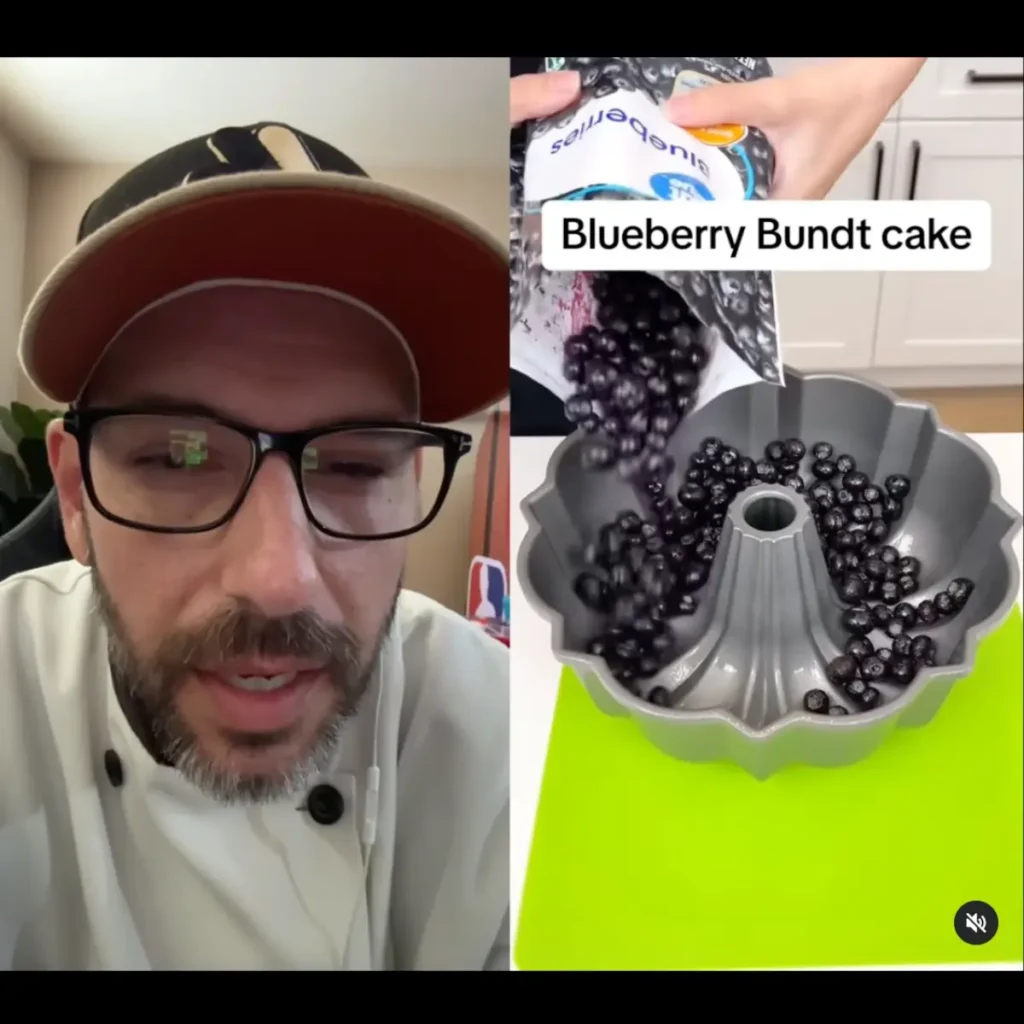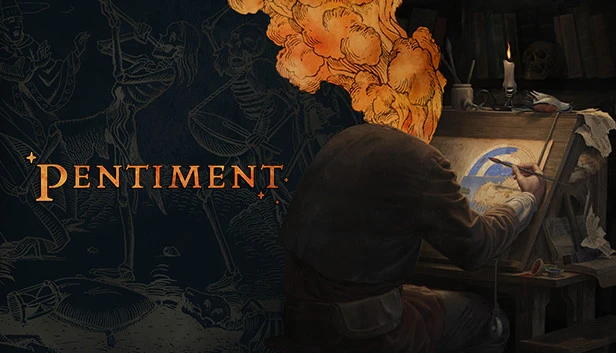
August Staff Picks
Words By F(r)iction Staff
Ari Iscariot
Pentiment
Recently, I finished Pentiment, a narrative role-playing game set in medieval Europe. I didn’t expect this game to move me the way it did, this little murder mystery whose 2D art is stylized like an illuminated manuscript, whose simple premise obscures a work of great beauty and complexity. There are many things you can praise Pentiment for: its dedication to accurately and sympathetically portraying medieval life, its thoughtful and detailed storytelling, its atmosphere of community and warmth, and its enthusiasm for its settings and characters. But the most pertinent thing to compliment Pentiment for is its love.
We begin the game as Andreas Maler, a passionate, driven journeyman artist from the 1500s, working in a monastery scriptorium and completing his masterpiece before he returns to Nuremberg to start his career. During his time in Tassing, he stays with a peasant family and grows close to the people of the town, as well as the brothers and sisters of Kiersau Abbey. But disaster soon strikes when a rich patron of the Abbey is murdered on its premises.
The killer is in the town, and so Andreas’s suspects are the very people he is becoming close to: the peasants he shares meals with, the monks he works with, the friends who tell him of their troubles and joys. It becomes clear that Andreas won’t have enough time to talk to every suspect, to hunt down every clue, or to determine guilt without a doubt. You must present your evidence with uncertainty. And it’s with a sinking feeling that you realize—there may be no guilty party to find at all. But you must choose, and choose you do, while the town pays the price.
In Act 2, Andreas returns to the town seven years later. You witness the effects of your choice, see how the town has grown without you, how your friends have changed. Andreas is haunted by his decisions and by his own personal grief. The loving, enthusiastic artist of the early game is gone. “I have lost my love,” he tells us. “My love for art. My love for family. My love for anything.” As a creator going through a depressive episode when I played this game, this line ripped me open. Grief, melancholia, the death of imagination—who of us that makes art has not experienced it? The destabilization of self that comes with loss of creation. The aimlessness, the mourning, the rage. The emptiness.
I cannot tell you the fate of Andreas without spoiling the game. But I can tell you to have faith. This is the sort of story that leads you to yourself again. That unlocks the labyrinthine reluctance and fear keeping you from your love. This is the sort of story where you and your beliefs are rewritten, the sort of story that puts hope in your soul again. That makes you think yes, even after everything, the craft is worth it. The world. The people in it. Love. After all, love is the only reason to do anything in this life, and Pentiment is proof of the kind of magic love can create.
Kaitlin Lounbserry
Strange Darling
With the autumnal months swiftly approaching, there’s been a noticeable influx of horror movies dropping in theaters. To kickstart a month of slashers and possessions and the resurgence of extraterrestrials and ghosties with narcissism, J.T. Mollner’s Strange Darling washes its viewers in a cherry-tinted world of aesthetic violence.
There’s lots to note about Strange Darling that’s kept me captivated days after leaving the theater, but most noticeable was its cinematography. Shot entirely on 35 mm film (courtesy of Giovanni Ribisi’s debut as cinematographer), viewers are thrusted into a world richly saturated in hues of red. It’s a cinematic choice that will end up as a massive print on someone’s wall in time (frankly, my wall is eager). If it was to be presented as a drink, it’d be sugary sweet with an unexpecting kick at the very end that keeps you sipping. It’s just *right* to compliment the hazy plot lines and the first thing I think to mention about the film.
Speaking of plot, there isn’t really much I can comment on it without giving anything away. Told in six chapters in a fractured narrative format, Strange Darling presents its many twists and turns to challenge its viewer and subvert stereotypes of what we’ve come to anticipate from the horror genre, specifically horror that utilizes the final girl trope. It might not reinvent the wheel, but it’s clear Mollner has done his research to understand how to tell a good story, with a hefty dose of murder. Of the many horror movies released this calendar year (I’ve seen most of them, if not all), this is by far my favorite.
Nate Ragolia
Chef Reactions
There’s no lack of cooking videos on the internet. Pretty much anywhere you look, some amateur chef or kitchen cowboy is offering a new hack for how to make mashed potatoes out of Pringles, build a big salad in a giant glass goblet, or churn out some hand-mixed casserole they claim to have learned about on a vacation to Texas.
Enter Chef Reactions, a YouTube, Facebook, Instagram, and TikTok-based internet personality who watches those wild (and sometimes absolutely revelatory) videos while offering delightfully wry, monotone commentary. I’ve been lucky that the algorithm gods are supplying all of my feeds with his stupendous content, and watching a few Chef Reactions each night to wind down has been a true joy. These videos are great because they are short and sweet, funny, and even occasionally point me toward something (that gets a positive reaction) that I might want to try cooking myself! After all, every recipe is a story, and every meal is an adventure unto itself.

